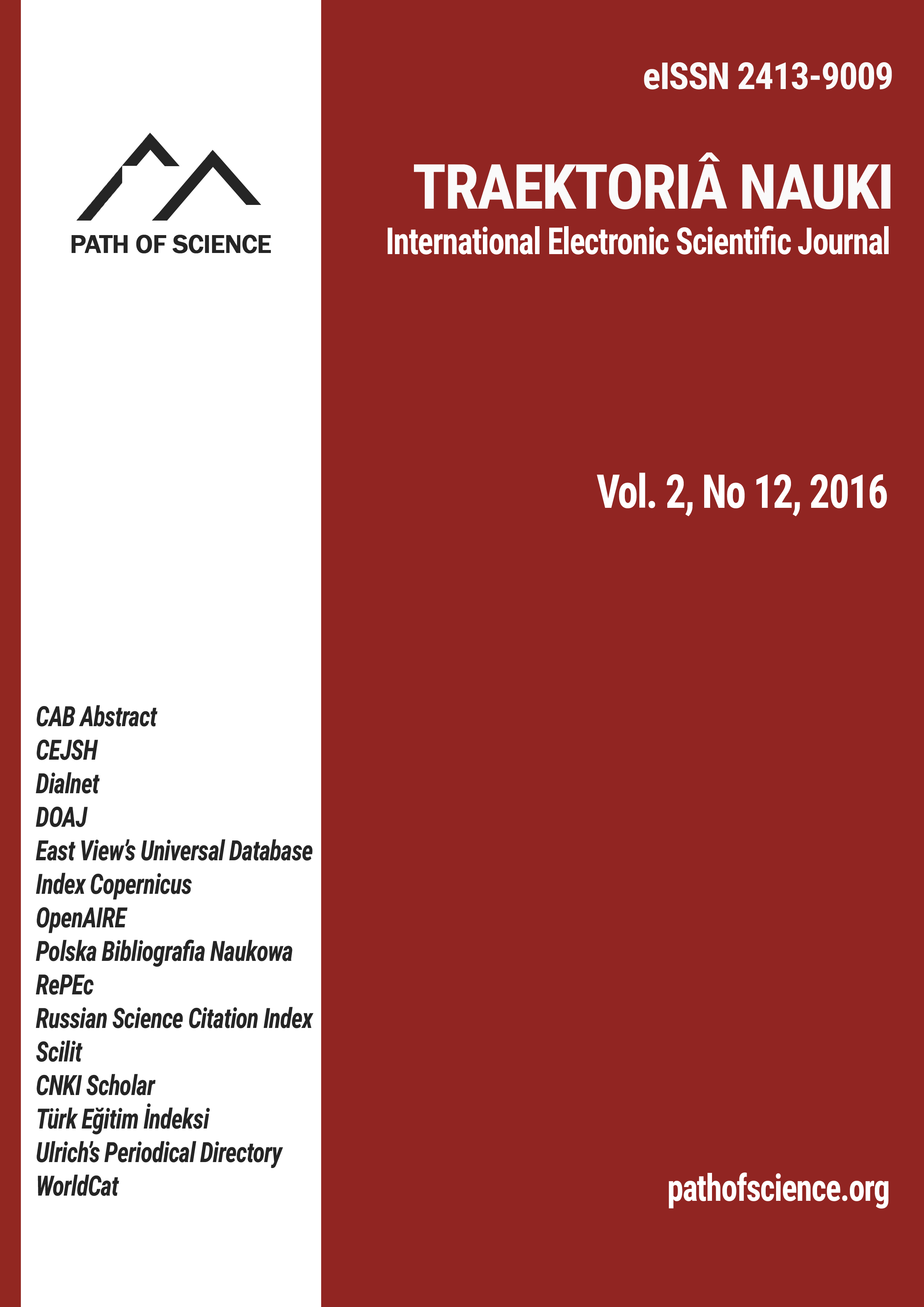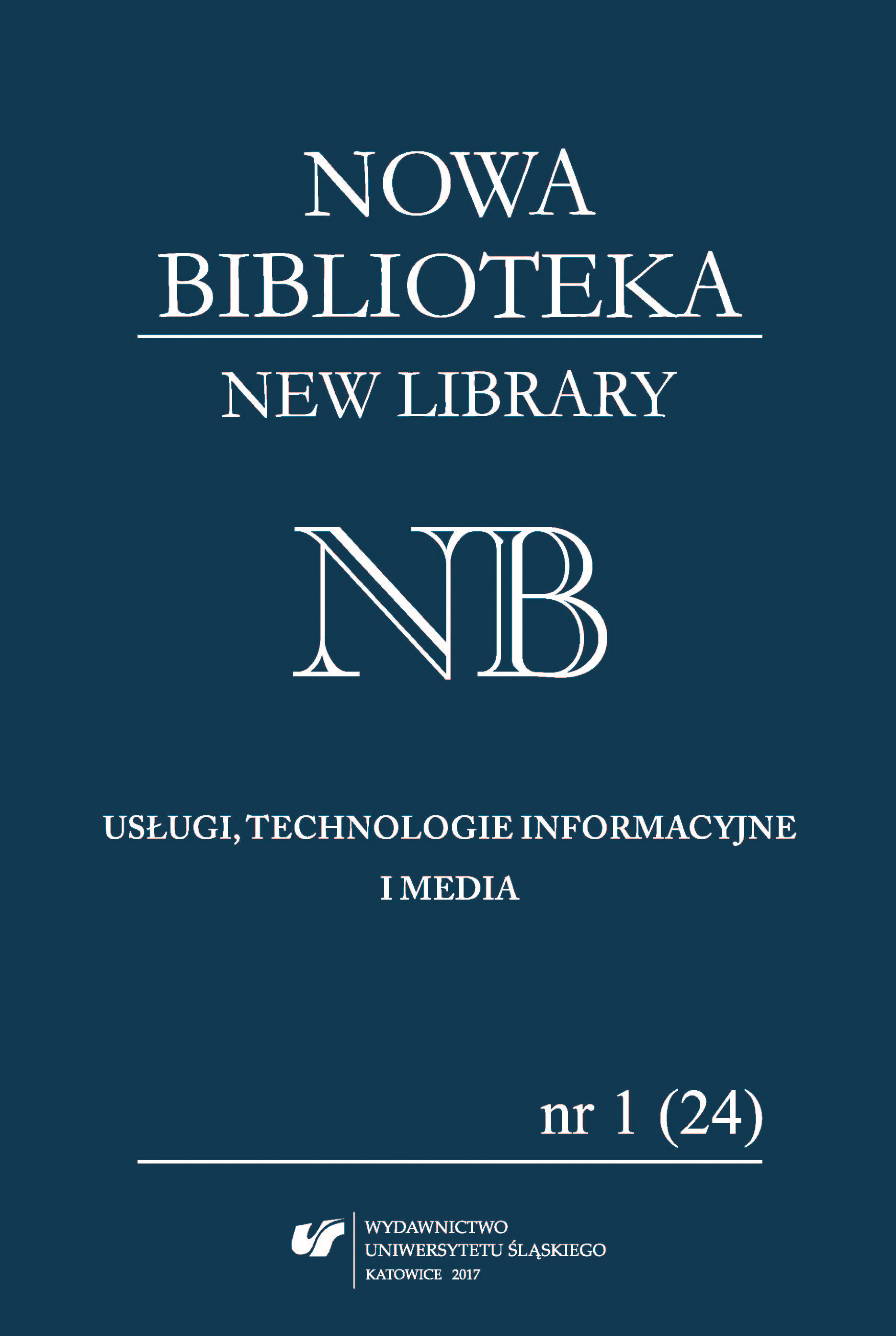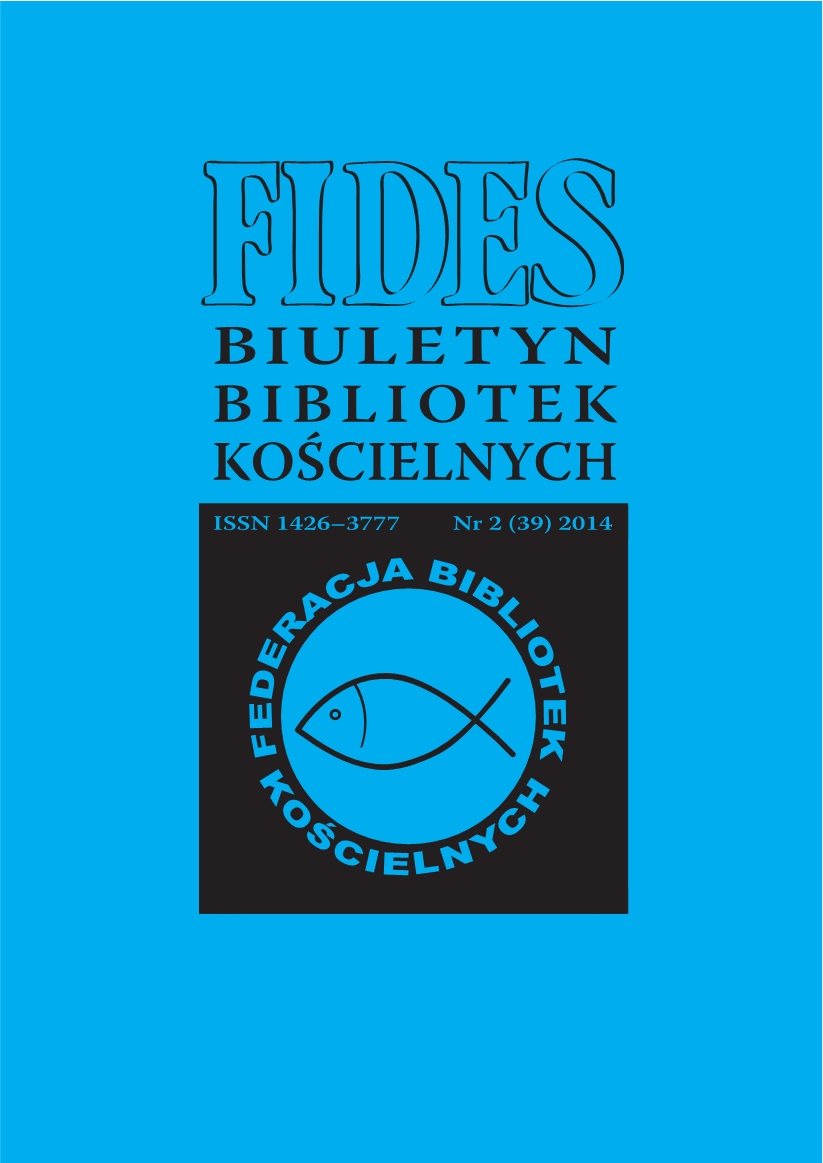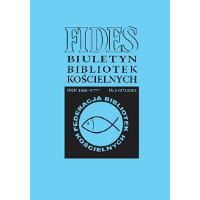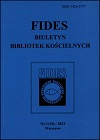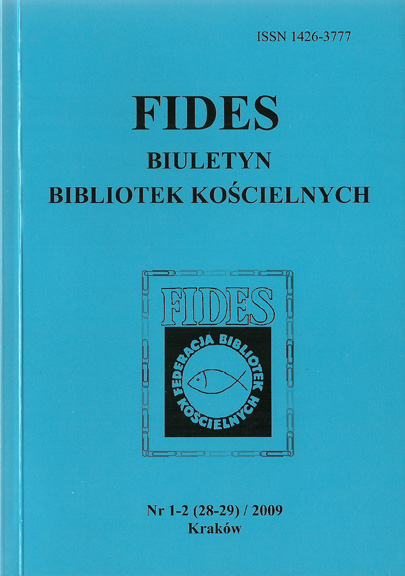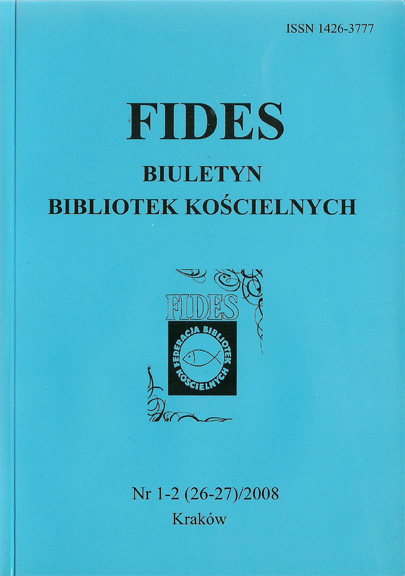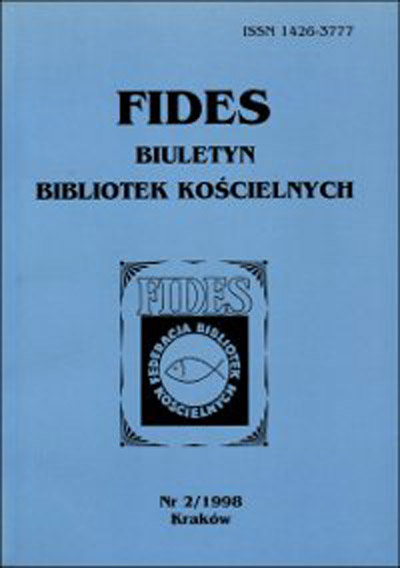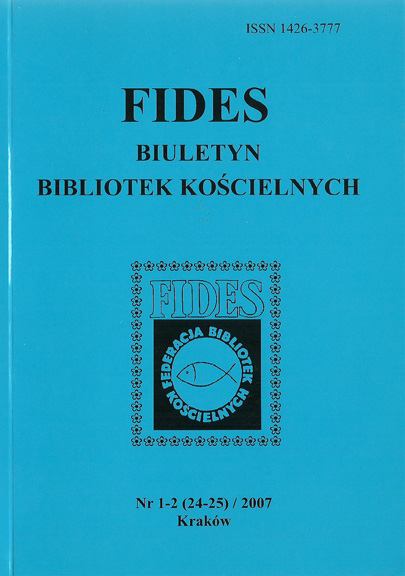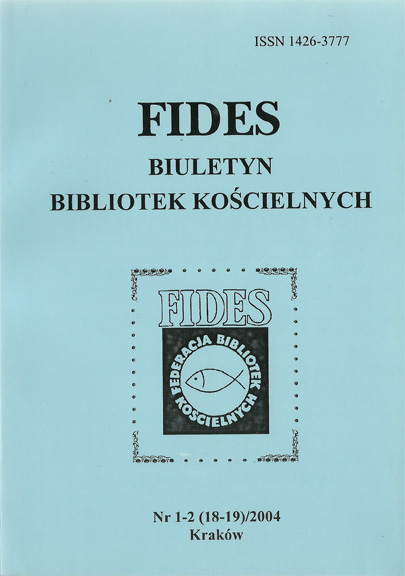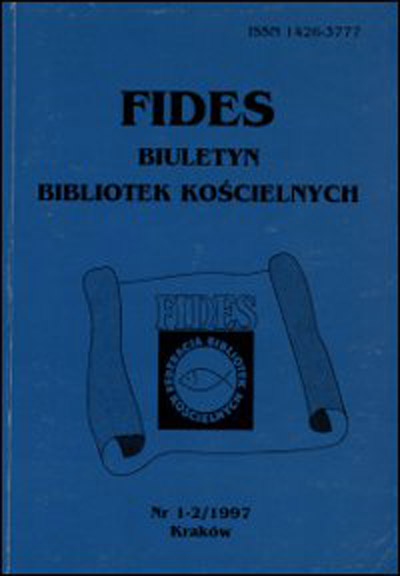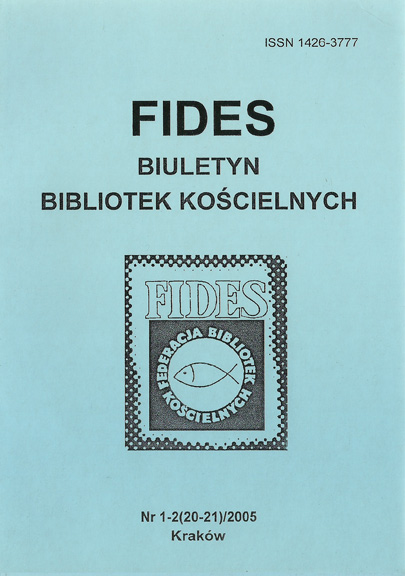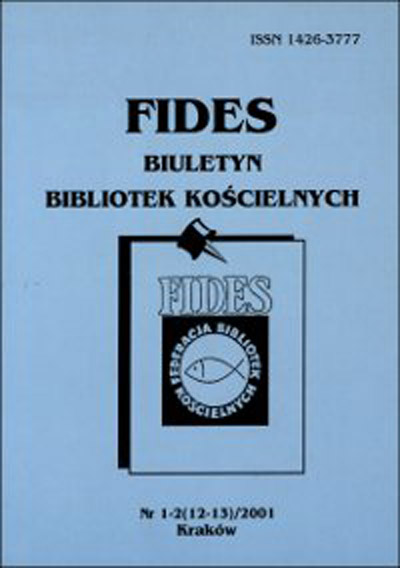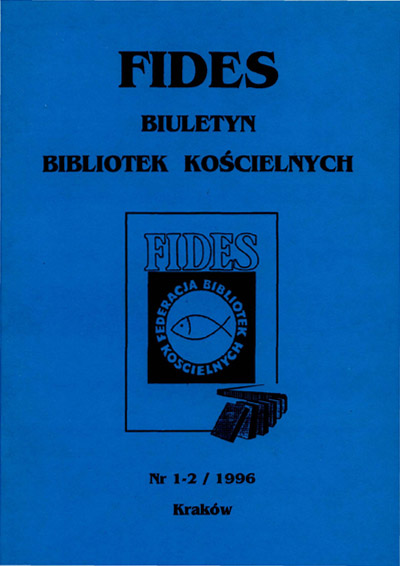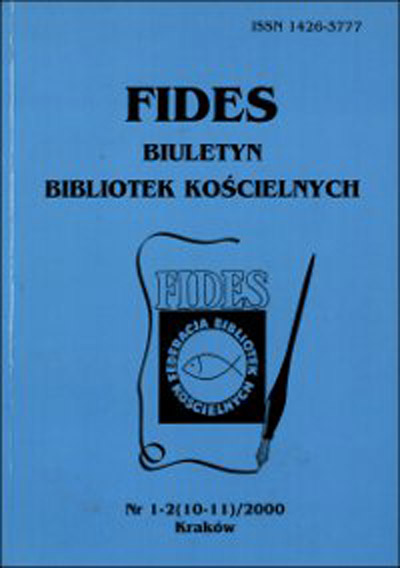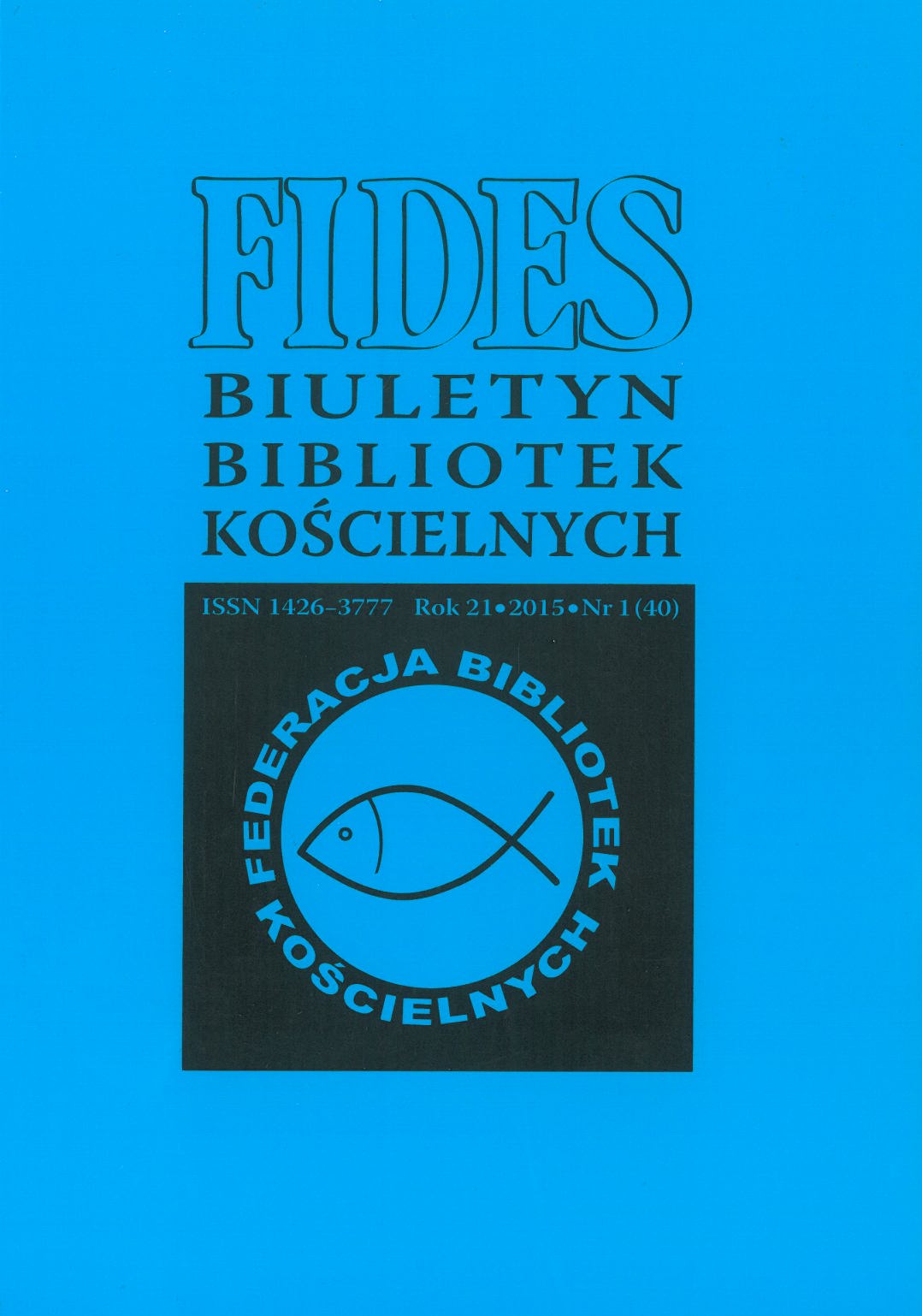
Niepoprawny marzyciel czy człowiek o otwartym umyśle – bibliotekarska działalność ks. dr. hab. Jana Bednarczyka
The aim of the article is to present Rev. Jan Bednarczyk Ph.D., the long-term director of the Library of the Pontifical University of John Paul II in Kraków (previous Papal Theological Academy), the President of the FIDES Federation of Ecclesiastical Libraries and the first editor of „Biuletyn Bibliotek Kościelnych FIDES”. During these years he remained as a man with a vision of creating a modern and friendly academic library and of libraries cooperation tailored to these times. In the article a particular attention was drawn to his achievements in the library field especially in relation to the library of which he was director for twenty-three years as well as church and parish libraries. Rev. Jan Bednarczyk still performs professionally as a lecturer and a priest.
More...
